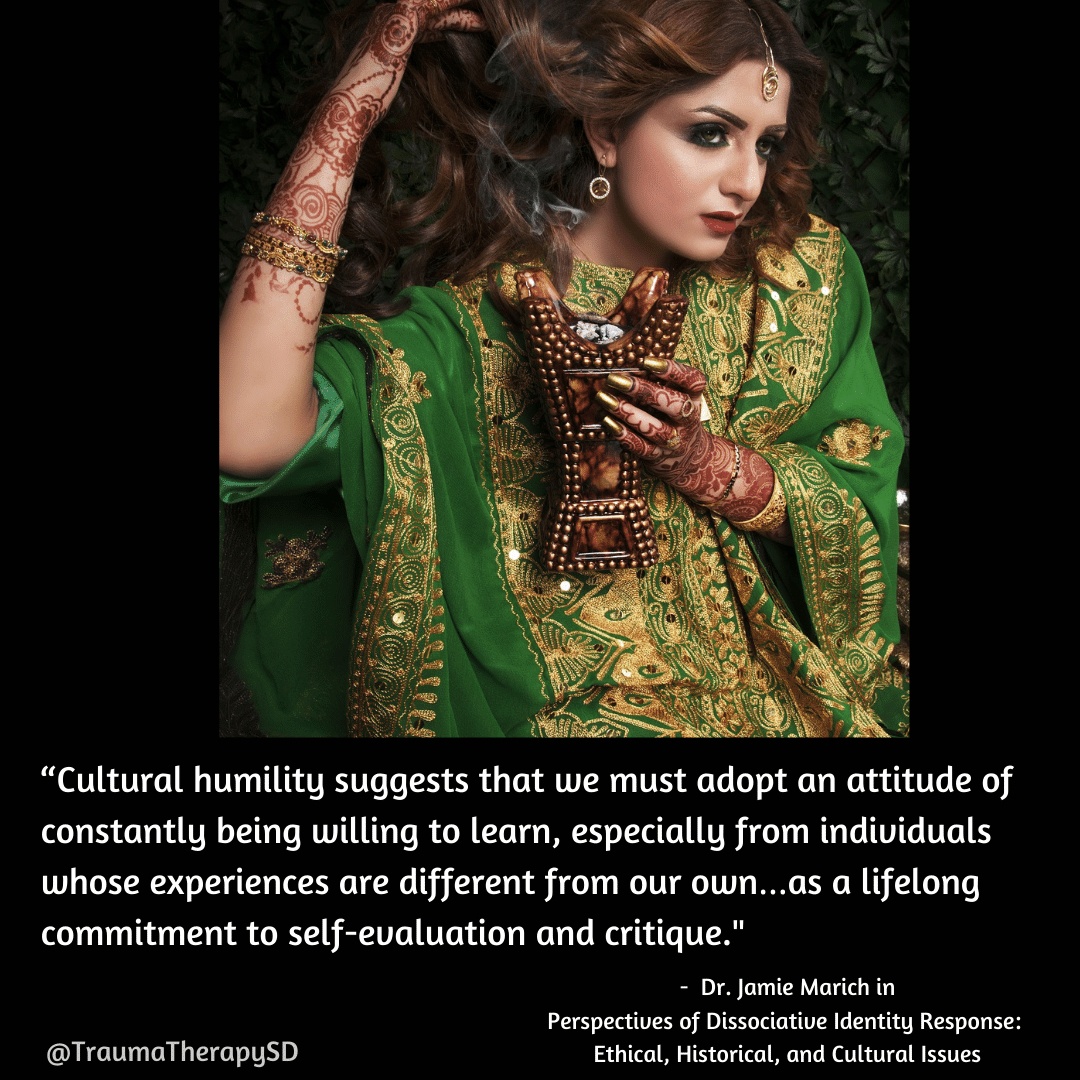Quote from Dr. Jamie Marich

As Dr. Jamie Marich, a fellow EMDR therapist, writes in Perspectives of Dissociative Identity Response: Ethical, Historical, and Cultural Issues, “Cultural humility suggests that we must adopt an attitude of constantly being willing to learn, especially from individuals whose experiences are different from our own…as a lifelong commitment to self-evaluation and critique.”
Cultural humility is a strong value of mine. We are moving away from the idea of cultural competency, which suggests that we gain a certain amount of knowledge in order to work respectfully with other cultures.
We’re moving away from this term as it encourages us to assume categorical knowledge about a group of people, which often encourages stereotyping and bias. It also suggests that we can come to a point at which we achieve cultural competence.
But people are so much more complex than any book or training can encompass, and we all contain so many intersecting identities that impact and influence one another.
I’ve done a ton of readings, in research articles, biographies, and blogs. I’ve attended a number of trainings from experts, many of whom have lived experience. I listen to podcasts and follow various IG accounts from gender diverse folx, trauma survivors, treatment providers, and researchers.
AND I would never the audacity to say that I know all there is to know about being trans, about trans people in general or a specific trans person in my office. I will always be listening and learning and growing.
AND I would never the audacity to say that I know all there is to know about trauma or dissociation, about traumatized people in general or a specific survivor in my office. I will always be listening and learning and growing. I will always be unpacking my own internalized -isms from growing up in this culture.
I endeavor to always listen to and up-lift the messages I get from my clients and those who have lived experiences. It’s never my objective to sit down across from a client as THE EXPERT.
I have expertise and training, and they have their lived experience, and if there is a conflict between what I have learned and what my client tells me, it is my reasonability to listen to them, reflect and defer to their lived experience, unless I have a very good reason otherwise.










